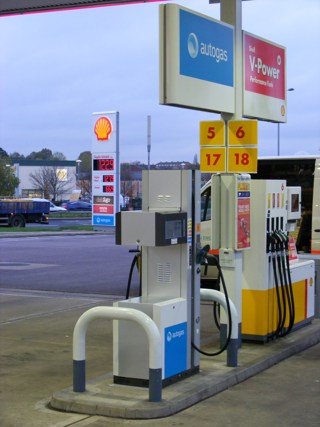A new vehicle emissions study has demonstrated that Liquefied Petroleum Gas (LPG) delivers significant emissions environmental benefits.
The research, testing more than 9,000 cars and vans, showed that LPG scored very highly across key criteria. Of the seven vehicle brands available in the five fuels - petrol, diesel, LPG and CNG, CNG Mono - LPG ranks first in four of the brands, with CNG ranking first twice and diesel ranking first once, whilst petrol fails to rank first in any of the brands.
|
Fuel version (of the brand) |
|||||
|
Brand |
Petrol |
Diesel |
LPG bi-fuel |
CNG bi-fuel |
CNG-mono |
|
Caddy |
2 |
1 |
4 |
NA |
3 |
|
C-Max |
3 |
2 |
1 |
NA |
NA |
|
Focus |
4 |
2 |
1 |
3 |
NA |
|
Golf |
3 |
2 |
4 |
1 |
NA |
|
Panda |
3 |
4 |
1 |
2 |
NA |
|
Zafira |
4 |
2 |
3 |
NA |
1 |
In response, the LPG industry is now calling on the UK Government do more to promote the fuel as a readily available alternative which is almost half the price at the pumps. While government has committed to keeping prices for all gaseous fuels substantially lower than petrol and diesel for the next decade, there is now even greater demand for driver incentives, as well as potential, subsidies for car manufacturers.
In December 2013, the Chancellor of the Exchequer George Osborne MP introduced a 10 year duty trajectory for gaseous road fuels, (CNG), Liquefied Natural Gas (LNG) and LPG. However, whilst the duty differential for CNG and LNG was frozen, the Autumn Statement introduced a duty differential reduction of 1p each year to 2024 only for LPG.
Linda Gomersall, General Manager of Autogas, the UK’s leading LPG Autogas supplier, said the report was further evidence of the important role LPG had to play as a cost-effective and environmental fuel alternative for consumers.
She added: “The report further underlines the credentials of LPG as a fuel which today is already delivering significant environmental benefits and cost savings at a time when families are feeling the pressure on household budgets. We were pleased that the Government committed to a further 10 years of low tax differential for gaseous fuels but we would call for further support. We strongly believe LPG should be treated exactly the same as CNG and LNG in terms of duty differential freeze.



















Login to comment
Comments
No comments have been made yet.